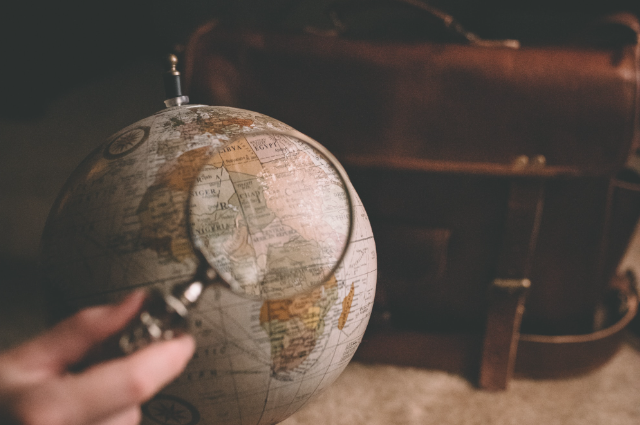A chill trickles down my spine as I think of Princess Noor Inayat Khan. A descendant of Tipu Sultan, she served as a spy in Nazi-occupied France during World War II. A patriarchal narratorial voice has subverted her courage and resilience as far as the annals of history are concerned. Within the confines of the Dachau concentration camp, her rebellious spirit was curbed with bullets. What is particularly awe-inspiring is that her last words were 'Liberte' which she screamed at the Nazi shooting squad. Courage such as this defies the human imagination. It comes from an impulsive response to combat and conquer fear. The desire for 'liberty ', the addictive taste of freedom becomes the life force compelling us to exercise dissent. The ideal youth of the world today should be anything but conformist in their outlook. Observing non-conformism enables us to conjure a vision for the world beyond the boundaries delineated by the existing status quo. It infuses us with the ability to counter ideas, and preconceived notions ingrained in our neural pathways. I call this 'Revolutionary Spring', a subaltern effort to dismantle divisive, authoritarian forces. This drill is imperative in breaking the mould, within which an increasingly powerful hegemonic world order operates. My perspective of the world is impaired, it is distorted and disintegrated into fragments. I see deep scarring divisions between the first, second, and the third worlds. The transcendent presence of humanity remains subdued and constricted within the realms of 'political correctness' mixed with a tinge of diplomatic intervention. A heap of lies is served for breakfast on the news every day, and we gobble it down, unwillingly, mechanically. We call it 'our' world, but is this the world we imagined to be our own?
A plethora of questions have been raised, but we don't have myriad answers to the same. These questions with their riddle-like disposition plague our world. The question that assumes a lot of gravity is not 'what' the world looks like but 'who' shapes it. The kaleidoscope through which we view the world is engineered from a position of privilege. The shape and colour of the glasses has been fixed, our perspective therefore operates within a boundary. The answer to 'who' is intrinsically related to a 'why'.Why do authoritarian leaders, powerful organizations and developed economies want to influence our perspective? According to the Aristotelian perspective of a teleological model, history is measured as steady progress and improvement without requiring an endpoint. It, therefore, creates a binary through the harrowing lens of historical materialism: the economically superior 'first world', and the 'third world', situated way behind it, teleologically. It is to sustain this unequal status quo that white supremacist states like the US and the UK display hegemonic tendencies. The US's hegemonic tendencies are multifaceted and complex. It is expressed as 'hard hegemony', I.e. the military exigencies committed by it in Iraq and Afghanistan. The designated war crimes in the Gulf War are crude attempts at power play, which remain unaccounted for. However, this isn't the most terrifying aspect of this assault on our world order. An insidious manifestation of hegemony comes in the form of 'soft hegemony', i.e. the capacity to 'manufacture consent'. The significant homogenization of culture happening across the world is what scares me the most.

Photo by Clay Banks on Unsplash
There is no need to antagonize Western culture, but at the same time, we should not shift the locus of our identity externally to a Western world that is seemingly more advanced, as per a social and political construct. The promise of plurality and the beauty of multiculturalism fade in the wake of subsequent McDonaldization that cuts across borders. It feeds directly into the inferiority complex experienced by post-colonial nations grappling with the evils of poverty and a lacuna in technology. 'Our' dream becomes the 'American' dream and 'Our' way becomes the 'American' way. This predicament must be avoided at all costs, for it mars our sense of Self. When our sense of Self is contradicted, our liberty is at stake. We can never be truly free unless we express our individuality without any inhibitions.
Therefore the facade of advancement in a culturally homogeneous world comes with clipped wings of freedom. The sociocultural identity, intrinsic to our sense of being, is defiled as we delve deeper into an existential crisis. The political and the personal coalesce to lend us a foothold in contemporary reality. We cling onto tidbits of our former self in an ever-evolving laissez-faire economy, where the notion of freedom is rendered ironic. Lord Macaulay's remark about a class of people Indian in blood, but English in taste, is hauntingly relevant today. The final question that this article deals with, is should we paint an image of the world as directed by the sharp, ventriloquist tone of the 'first world', or do we draw inspiration from the archetypal image in our minds. The resolution of this dichotomy lies in effective diplomacy, one that is unbiased and considering the present world scenario rather utopian. These are dark times, there's no denying that, but we must strive to create a place where, in Tagore's words,
"The mind is without fear, and the head is held high".

